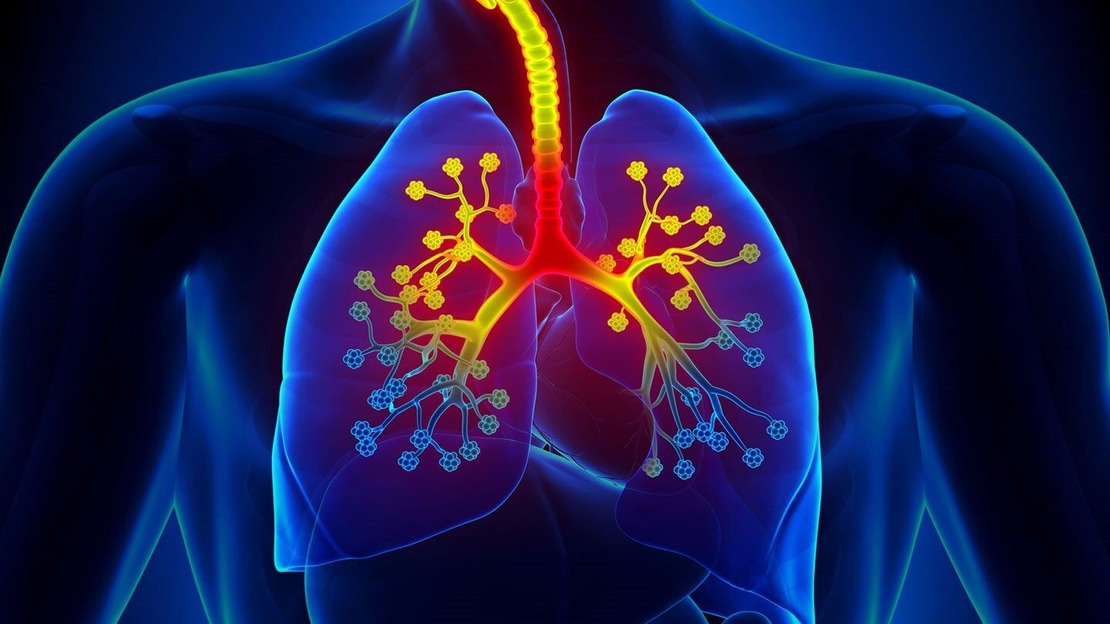Preventive Healthcare
Asthma - Symptoms, Causes, Types, Diagnosis & Treatment

Table of Contents
Bronchial asthma, more commonly known as asthma, is a disease that severely affects your lungs. This condition is chronic and requires continued medication and treatment. Asthma in its most severe form can result in an asthma attack, which, if not treated, can prove to be fatal. An asthma attack can be caused either by bronchospasm—resulting in the constriction of the muscles around the airways; inflammation of the lining of the airways—making it difficult to breathe, or excess mucus production that clogs the airways.
If your asthma isn't controlled, it might result in a flare-up, or what is medically called an exacerbation. Thankfully, a little awareness and medical attention can be beneficial in controlling asthma symptoms to a large extent.
Types of Asthma
There are usually two types of asthma based on the severity and cause.
- Intermittent: This type of asthma comes and goes. So patients feel better between asthma flares.
- Persistent: In this type of asthma, you will have severe, mild, or moderate symptoms. In such cases, the severity will be determined based on the symptoms.
Other types of asthma include:
- Allergic: Some people may be allergic to certain substances. This may trigger asthma. Such allergens include pollens, moulds, and pet dander.
- Non-allergic: Such asthma attacks may happen because of outside factors such as stress, exercise, weather, or any illness you may have.
- Exercise-induced asthma: This asthma occurs as a result of certain exercises that you do.
- Occupational asthma: This type of asthma occurs if you work around or with irritation-causing substances.
Symptoms and Causes of Asthma
The most common asthma symptom is wheezing, or the whistling or squealing sound of your breath when you get an asthma attack. Other asthma symptoms may include
- Coughing
- Shortness of breath
- Tightness in the chest
- Panic or anxiety
- Rapid breathing
- Frequent contraction of infections
- Fatigue
Severe asthma symptoms that may call for an emergency include
- Gasping for breath or air
- Disorientation or confusion
- Dizziness
- Pale lips
- Pale fingernails
- Difficulty walking
- Difficulty talking
- Blue lips
Causes of Asthma
Although the exact cause behind asthma is unknown, researchers believe that it may be caused because of a variety of factors including
- Genetics: If your parents or siblings have asthma, you are more likely to get the condition.
- Viral Respiratory Infections: If you have a history of severe viral infections in your childhood, like respiratory syncytial virus infection (RSV), you have a chance of developing asthma.
- Allergies: Individuals with a family history of allergies may be at a higher risk of developing allergic conditions such as atopic dermatitis (eczema) or allergic rhinitis (hay fever). This can be associated with the development of asthma.
- Air Pollution: The risk of asthma increases with exposure to the primary constituent of smog, i.e., ozone, particularly for those residing or having grown up in urban regions.
- Obesity: Being overweight or obese can increase the risk of asthma in both children and adults. While the exact cause is unknown, some experts suggest that low-grade inflammation resulting from excess weight may play a role.
Risk Factors of Asthma
Many factors can cause asthma. But some of them increase the risk of an occurrence. These include
- Allergies: Allergic asthma symptoms are common in both adults and children.
- Environment: Exposure to certain environmental substances such as toxins, fumes, smoke, and allergens can also induce asthma.
- Genetics: If you are from a family with a history of asthma or other allergies, you are at a higher risk of getting asthma.
- Respiratory Infections: Respiratory infections like RSV, or Respiratory Syncytial Virus, can prevent the full development of the lungs in young children, which can later cause asthma.
Asthma Triggers
Patients suffering from asthma demonstrate some common elements that may trigger asthma attacks. Some common asthma triggers include.
- Air pollution
- Dust mites
- Exercise
- Mould
- Pest infestation
- Dried skin flakes on house pets
- Tobacco smoke
- Strong chemicals
- Certain smells
- Environmental exposure to allergens
Diagnosis of Asthma
Asthma is typically not diagnosed through a single test. Rather, the doctor uses a set of criteria to determine whether you have asthma or not. These can be
- Your health history
- Family health history
- A physical exam where your breathing is assessed
- Allergen tests to identify allergic reactions
- Breathing tests or PFTs (Pulmonary Function Tests) measure the inflow and outflow of air in your lungs
Doctors usually refrain from administering any tests on children since the readings may not be accurate. Instead, they prescribe medication to assess if the symptoms improve. In adults, on the other hand, a bronchodilator or other asthma medication may be prescribed to see if symptoms improve.
Prevention and Management of Asthma
As the exact cause of asthma is unknown, it is difficult to know how to prevent this inflammatory condition. However, there are many ways that can help you prevent asthma attacks including:
- Avoid triggers: Exposure to certain chemicals, products or smells that may have caused breathing problems.
- Reduce exposure to allergens: If you feel uneasy with exposure to dust or mould, try to avoid it to prevent asthma attacks.
- Get allergy shots: Allergen immunotherapy is an effective treatment that may boost your immune system. Through regular shots, your body will become less sensitive to certain triggers. However, always consult a doctor before undergoing therapy.
- Take preventive medications: Your doctor may advise you on certain medications to reduce or relieve the symptoms of asthma.
Besides, you can change your lifestyle to keep yourself healthier and reduce the chances of an asthma attack. These lifestyle measures to prevent asthma include:
- Maintain a Healthier Diet: Eating a healthy and balanced diet can keep you away from an asthma attack.
- Maintain a Moderate Weight: Asthma worsens in people who are overweight or obese. Losing weight is good for your heart, lungs and joints.
- Quit smoking: Try to avoid smoking as cigarettes can trigger asthma symptoms.
- Regular Exercise: Proper exercise can keep you away from breathing problems.
- Manage Stress: Stress can also lead to an asthma attack. It can worsen the condition of asthma. Thus, try to manage your stress.
When to See Your Doctor?
You must consult your doctor if you haven’t been diagnosed with asthma yet, but face symptoms like:
- Coughing.
- Wheezing.
- Breathing shortness.
- Chest tightness, pain or pressure.
You may not face all the symptoms with every flare. However, you can experience different symptoms at different times in chronic asthma. Symptoms also tend to change between asthma attacks. Therefore, it's important to see your doctor upon experiencing these symptoms so that timely action can be taken.
Asthma Treatment
Depending on the causes and severity, the treatment for asthma symptoms is determined.
1. Quick-Relief Treatment
This includes medications used to attain quick relief from an asthma attack. These may be
- Bronchodilators: They work instantly to reduce the muscle tightness around the airways and help normalise breathing. Usually, it is advised to take the specific bronchodilator as specified by the physician. These are usually taken with the help of a nebulizer or inhaler.
- First aid: This is usually done as a first aid response to a person undergoing an asthma attack. The individual is advised to sit upright and use a generic bronchodilator.
2. Long-Term Medications
Individuals suffering from severe asthma symptoms are generally prescribed long-term medications. While they may not help to prevent immediate symptoms, they do help manage the severity in the long run when consumed as prescribed. These include
- Anti-Inflammatory Medicines: These are taken with corticosteroids or an inhaler. They help reduce swelling and prevent excess mucus production.
- Anticholinergics: Usually taken daily along with anti-inflammatories, which help stop the tightening of muscles around the airways.
- Bronchodilators: These are long-acting dilators that are taken along with anti-inflammatory medications.
3. Biologics
Biologics target specific antibodies in the body, which, in turn, disrupt the pathway leading to asthma-inducing inflammation. This course of treatment is usually prescribed when other medications are unable to control asthma triggers. These medications are either injected or infused under medical supervision.
4. Bronchial Thermoplasty
This special treatment uses an electrode to heat the airways inside the lungs. This reduces the size of the muscles surrounding the area and prevents tightening. This is a minimally invasive procedure that can only be performed by a medical practitioner in a hospital setup.
Asthma is very manageable and, to some extent, curable. You need to be aware of asthma symptoms beforehand to act correctly when and if a trigger occurs, resulting in an asthma attack.
Conclusion
Asthma is a chronic respiratory condition. It affects millions of people worldwide. There are several types of asthma. These include allergic asthma and non-allergic asthma. The causes of asthma are multifactorial, with both genetic and environmental factors playing a role.
The diagnosis of asthma involves a thorough medical history, physical examination, and various tests. Treatment of asthma involves a combination of medications as well as avoidance of triggers and lifestyle modifications. With proper management, people with asthma can lead healthy and active lives.
If your doctor suggests any type of test for diagnosing asthma, feel free to book your tests with Metropolis Labs. With a commitment to quality and on-time delivery of blood test reports, Metropolis Labs is a leading diagnostic and healthcare service provider in India. Remember, your health is your wealth, and Metropolis Labs is here to help you safeguard it. If you want to learn more about Metropolis Labs and its services, visit their website.









































